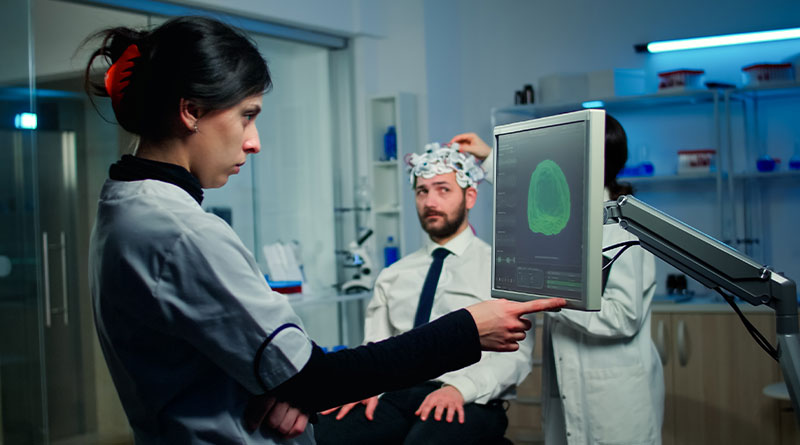The medical community has long held the view that a person’s actions directly impact their mental Illness and cardiovascular health; for example, when depressed, people may seek solace in harmful habits like smoking, excessive drinking, or poor diet.
That way of thinking has begun to shift. Additionally, studies have shown potential physiological links. The biochemical and physiological variables that cause mental health problems may also impact cardiovascular disease, according to mounting data.
When people have mental health disorders, it’s not only that they’re sad; they also undergo biochemical changes that put them at increased risk for other health problems, such as cardiovascular problems. Therefore, while caring for patients, it is crucial to keep the head-heart relationship in mind.
In what ways might heart disease impact mental illness?
Here are a few of the most studied mental health illnesses that have been linked to cardiovascular disease or its risk factors:
Mood Disorders
Major depressive disorder (MDD) and bipolar disorder (BPD) patients report that their mood impacts their psychological and mental health practically all day long.
Post-Traumatic Stress Disorder (PTSD)
Any major life event, such as being in a war zone or surviving a natural disaster, can cause post-traumatic stress disorder (PTSD) in certain people.
Long-Term Stress
People experience persistent and uncomfortable emotional stress associated with predictable biochemistry, physiology, and behaviour changes.
Substance use disorders and other behavioural health issues may have a connection to cardiovascular disease.
Is there a link between cardiovascular disease and mental health issues?
Before mental health problems is diagnosed and even throughout therapy, there is a substantial and increasing amount of evidence linking mental health to risk factors for cardiovascular disease. Indirectly, through harmful health behaviours or directly, through biological pathways, these impacts might occur.
Physiologic impacts on the body can be observed in people with long-term depression, anxiety, stress, or post-traumatic stress disorder (PTSD). These consequences include elevated cortisol levels, decreased blood supply to the heart, and increased cardiac reactivity, manifesting as elevated heart rate and blood pressure. These physiological impacts can cause metabolic disease, heart disease, and calcium buildup in the arteries over time.
There is mounting evidence that cardiac events, such as heart failure, stroke, or a heart attack, can lead to the development of mental health illnesses. Acute heart disease episodes can trigger these diseases due to a variety of circumstances, such as physical discomfort, anxiety about dying or becoming disabled, and stress over any related financial difficulties.
There is some evidence that medications used to treat mental health issues increase the risk of cardiometabolic diseases. Certain antipsychotic drugs have been linked to weight gain, insulin resistance, diabetes, cardiovascular disease, arrhythmia, stroke, and mortality.
Anxiety and depression are mental health issues that might heighten the likelihood of engaging in risky behaviours, including smoking, leading a sedentary lifestyle, or not taking medications as recommended. Because persons with mental health disorders may not know how to handle stressful situations healthily, they may not be able to make the kind of healthy lifestyle choices that would lower their risk of heart disease.
Which groups are more likely to suffer from cardiovascular disease as a result of mental illness?
Preexisting mental health problems are associated with increased incidence of cardiovascular disease in some populations, including:
Veterans
There is a correlation between post-traumatic stress disorder (PTSD) and an increased risk of cardiovascular disease among veterans, according to studies.
Women
Researchers have shown that post-traumatic stress disorder (PTSD) and depression may negatively impact physical health, especially about the increased risk of complications and deaths caused by coronary heart disease (CHD), in studies that only included female participants.
Couples with someone who has PTSD
Research comparing couples with and without PTSD found that those with the disorder had higher rates of violent outbursts, rage, and cardiovascular responses during arguments. Individuals in these relationships may be at increased risk for coronary heart disease and anger-related physiological stress reactions due to interpersonal disharmony.
Racial and ethnic minorities
Finally, research examining minority groups has shown that some subsets may be more prone to hypertension, cardiovascular reactivity, heart disease, and poor heart health outcomes as a result of stress, anxiety, depression, inequalities in social determinants of health, adverse childhood experiences, and racism/discrimination.
Taking care of your emotional and cardiovascular well-being
Taking care of your emotional and physical well-being is within your reach. Having heart disease makes these all the more crucial.
See your physician
Anxiety and depression, like cardiovascular disease, have numerous effective treatments. To assist you in managing both diseases, your doctor can discuss medication options and lifestyle modifications.
A variety of mental health care providers, including psychologists, psychiatrists, counsellors, mental health nurses, occupational therapists, and social workers, can be recommended by your primary care physician. As a means of locating local assistance
Join a cardiac rehabilitation programme
A programme of exercise, information, and support designed to improve your heart is known as cardiac rehabilitation (cardiac rehab) and is overseen by medical experts.
Attending cardiac rehab can assist those who have experienced a heart attack, undergone cardiac surgery, or been diagnosed with a heart problem in implementing sustainable lifestyle changes that enhance their overall health and lower the likelihood of experiencing another heart attack.
You can get help for mental health problems, including sadness and anxiety, through a cardiac rehabilitation programme. You can also meet others who have been through the same thing.
Adopt a healthier way of living
Your emotional and physical well-being will greatly benefit your efforts to maintain a healthy lifestyle. Some examples of healthy lifestyle changes include:
- Engaging in regular physical activity
- Eating a heart-healthy diet
- Cutting back on alcohol use
- Giving up smoking
- Making sure you get adequate sleep
- Learning relaxing techniques.
Conclusion
One way to lower the risk of heart disease is to treat mental illness problems early on by making sure people have access to the resources they need to adopt healthier lifestyle habits, such as getting more exercise, eating better, and cutting back on smoking.
Sahil Sachdeva is the Founder of curemedoc.com and a Digital Marketing professional with years of experience. If you need help in Content writing and want to increase your website ranking, connect with him, as he has some premium websites where you can share blogs with DoFollow links and increase your website’s ranking on Google.





